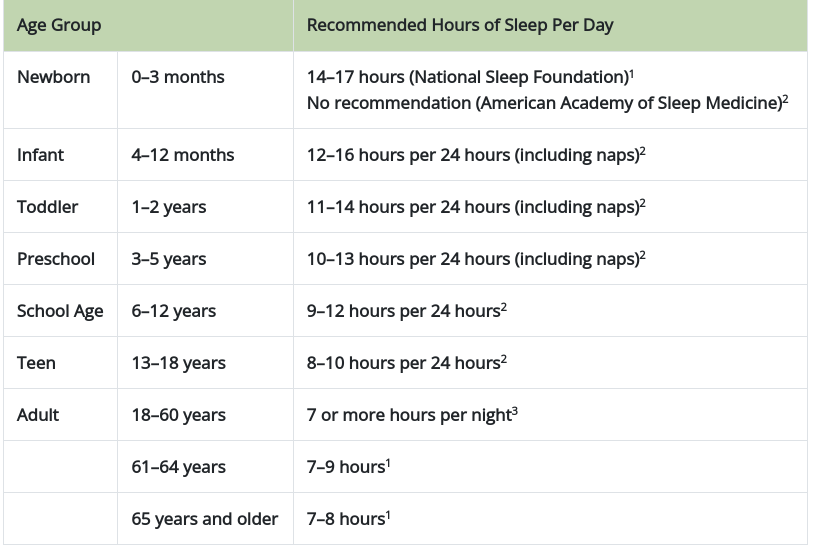Many of us find ourselves battling morning sleepiness, hindering our ability to kickstart the day with enthusiasm.
Morning sleep, also known as morning grogginess or sleep inertia, refers to the transitional state between sleep and wakefulness experienced upon waking up.
During this period, individuals may feel drowsy, disoriented, and reluctant to leave the comfort of their bed. Morning sleep is a common phenomenon and is influenced by factors such as the quality of sleep the night before, consistent sleep schedules, and environmental conditions.
How much sleep is healthy by age?
Healthy adults need at least seven hours of sleep per night. Babies, young children, and teens need even more sleep to enable their growth and development.

easy tricks: how to avoid morning sleep
If you’re struggling to stay awake in the morning, here are some tips on how to avoid morning sleepiness.
We not only feel sleep in the home, but also in our workplaces, meetings, and schools. Understanding the challenges associated with morning sleep can lead to a more refreshed and energized start to the day.
1. Get Enough night sleep
Individual sleep needs vary, but most adults require 7-9 hours of sleep per night. Strive to achieve a nightly sleep duration ranging from 7 to 9 hours to ensure that you wake up feeling refreshed and energized in the morning.
Engage in calming activities before bedtime, such as reading, gentle stretching, or meditation, to signal to your body that it’s time to wind down.
Try to avoid screens at least an hour before bedtime. The blue light emitted by electronic devices can interfere with the production of the sleep-inducing hormone melatonin.
Pro tip: Opt for a light, nutritious snack if you’re hungry before sleeping.
2. Refrain from using the snooze button
pressing it can result in increased fatigue and morning grogginess. Instead, aim to rise promptly when your alarm sounds.

Position your alarm clock or smartphone at a distance from your bed. This forces you to physically get up to turn it off, making it less likely for you to succumb to the snooze button.
Opt for alarm tones that are pleasant or motivational. A positive wake-up sound can make you more inclined to rise promptly rather than delay with the snooze button.
Pro-tip: Try the 90-minute sleep cycle hack by setting two alarms — one for 90 minutes before you want to wake up and one for when you actually want to wake up.
3. Drink a glass of water empty stomach
Let a glass of water freshen up your entire body before you get moving. After a night of sleep, your body may be dehydrated. Drinking water first thing in the morning helps rehydrate your body and maintain optimal fluid balance.
Water is essential for proper brain function. By hydrating in the morning, you can improve your cognitive abilities, sharpen your focus, and promote mental clarity.
Pro tip: Consume fruits and vegetables with high water content, such as watermelon, cucumber, and oranges.
4. Expose yourself to natural sunlight
Exposure to natural light can help regulate your body’s circadian rhythm and make it easier to wake up in the morning.
Natural light exposure helps regulate your internal body clock, supporting healthy sleep-wake cycles.

Sunlight raises your body’s serotonin levels, leading to improved sleep — and, therefore, increased daytime energy.
Start your day by spending a few minutes outdoors, allowing the morning sunlight to invigorate you. This can set a positive tone for the rest of the day.
Pro tip: use your lunch break as an opportunity to get outside and soak in some sunlight. A brisk walk can provide a refreshing break and enhance your overall well-being.
5. Stretch out your tired body (Yoga or Exercise)
During REM (Rapid Eye Movement) sleep, our muscles literally paralyzed (Atonia), and activating them with yoga or exercise releases energy-stimulating endorphins.
Pro-tip: If you have a bit of time for morning yoga, take it; just 25 minutes has been shown to boost energy levels and brain function.
6. Splash your face
A splash of water provides an instant wake-up call, helping you feel more alert and refreshed as you begin your day.
The act of splashing water on your face serves as a sensory cue, signaling the transition from sleep to wakefulness and helping you feel more awake and ready to face the day.
Is getting out of bed the main problem? Keep a spray bottle of water by your bedside table so you can lean over and mist yourself without even opening your eyes.
Pro tip: After splashing, pat your face dry with a clean towel to avoid unnecessary friction on your skin.
7. Eat a Healthy breakfast
A descriptive cross-sectional study does say that skipping breakfast may affect performance during the rest of the day.
A nutritious breakfast kickstarts your metabolism, helping your body efficiently convert food into energy throughout the day.

But if you’re working out in the morning, eat breakfast after, not before. This will (a) burn more calories, (b) boost your metabolism, and (c) avoid an unsettled stomach.
Pro tip: Build a fatigue-fighting breakfast instead.Since what you eat at breakfast can affect how you feel for hours, making the right choice is critical for your health.
8. Drink Less Coffee
That’s right, we said less coffee — but not none! Though coffee has plenty of health benefits, chugging a lot in the morning may indirectly contribute to increased fatigue later in the day.
Coffee, containing caffeine, can disrupt sleep patterns, potentially leading to difficulty falling asleep and morning grogginess.
Pro-tip: Avoid the big mugs. Purchase a smaller cup, if you have to, to help reduce the amount you drink.
9. Avoid having sugar until lunch
Sugar consumption can influence cortisol, a hormone linked to the body’s natural wakefulness.
All breakfasts are not created equal, so take stock of your morning food choices. Consuming sugary foods in the morning can lead to rapid spikes and subsequent crashes in blood sugar levels. These crashes may contribute to feelings of fatigue and drowsiness.
Pro-tip: Pay attention to nutrition labels to see how much sugar you’re getting at breakfast — and cut back wherever possible. Keep whole foods like apples, carrots, and oranges on hand for easy access.
10. Manage your stress
While you might not have the immediate ability to resolve specific situations, once you recognize them as contributors to mental and physical fatigue, you can often take steps to alleviate their impact over time.
Pro-tip: Simplify busy mornings at home by preparing school lunches the night before, or allocate time for morning meditations to cultivate a sense of calm before starting your day.
11. adopt positive sleep (and waking) habits
Set of best practices aiding in nighttime sleep like
- turning off screens an hour before bed
- maintaining a consistent bedtime
- ensuring a comfortable sleep environment
- rising at the same time each morning
Pro tip: set your mind to practice the sleep routine as a habit.
These habits contribute to the upkeep of your circadian rhythm, the internal biological clock regulating feelings of sleepiness.



